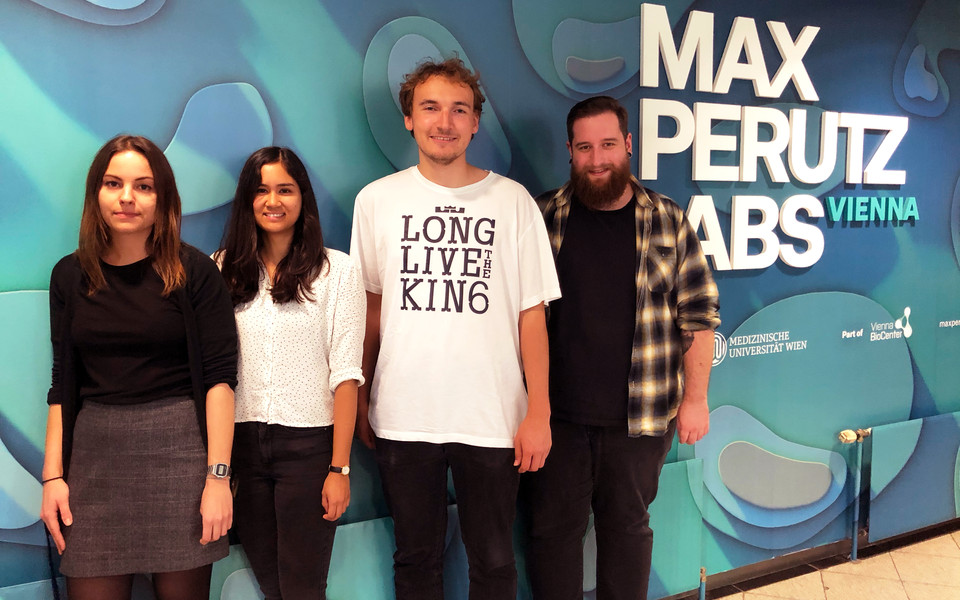
Thomas Henry: Enhancer function in the differentiation of embryonic stem cells
Christa Buecker’s lab studies how enhancers regulate gene expression during early embryonic development. Enhancers are short stretches of DNA sequences that control when a gene is activated, often from a distance within the genome. With the uni:docs fellowship, PhD student Thomas Henry will dissect the members of one cluster of enhancers regulating a single target gene and analyse how each of them contributes to the exact expression profile of this gene. The lab has previously identified one particular enhancer that amplifies transcription initiated from the canonical enhancer elements while showing very low enhancer activity on its own. During his PhD, Henry will identify what distinguishes this enhancer from others and how common such elements are within the genome.
Claudia Pachinger: Conserved features and functions of centriolar satellites
Alexander Dammermann’s lab seeks to understand the mechanisms underlying centriole assembly and their function in centrosome and cilium biogenesis. PhD student Claudia Pachinger is interested in centriolar satellites, cytoplasmic particles that cluster in the vicinity of centrosomes, the main microtubule organising centers in animal cells. In her project, Claudia will use the fruit fly Drosophila and the nematode worm C. elegans as experimental models to define their function, dynamics and composition, essential to understanding their role in centrosome and cilium biology and consequently in human health and disease.
Michael Feichtinger: Structural and Dynamic Characterization of YAP and the YAP:TEAD Complex
Michael Feichtinger’s project tackles the structural and dynamic characterisation of the biologically and pharmaceutically relevant TEAD-binding domain of the protein YAP. YAP is a terminal effector and transcriptional regulator of “Hippo signalling”, a cellular signalling pathway that controls organ size. Deregulation of YAP is associated with a variety of cancer types. In a cooperation with Novartis Basel, Michael will investigate YAP via an integrated structural biology approach. He is a PhD student in the lab of Robert Konrat.
Katharina Siess: Regulation of the membrane-associated tumor suppressor phosphatase PHLPP
Katharina Siess is pursuing her PhD research in the lab of Thomas Leonard. The Leonard lab studies how lipids regulate the activity of signalling enzymes, including both protein kinases and phosphatases. The PH domain leucine-rich repeat containing protein phosphatase (PHLPP) has been implicated as a tumor suppressor due to its role in attenuating pro-growth and survival signalling mediated by Akt. Despite such a prominent function, very little is known about the structure or biochemistry of PHLPP. Katharina will combine integrative structural biology techniques together with quantitative biochemistry to elucidate the mechanisms that govern the activity of this enzyme in the cell.